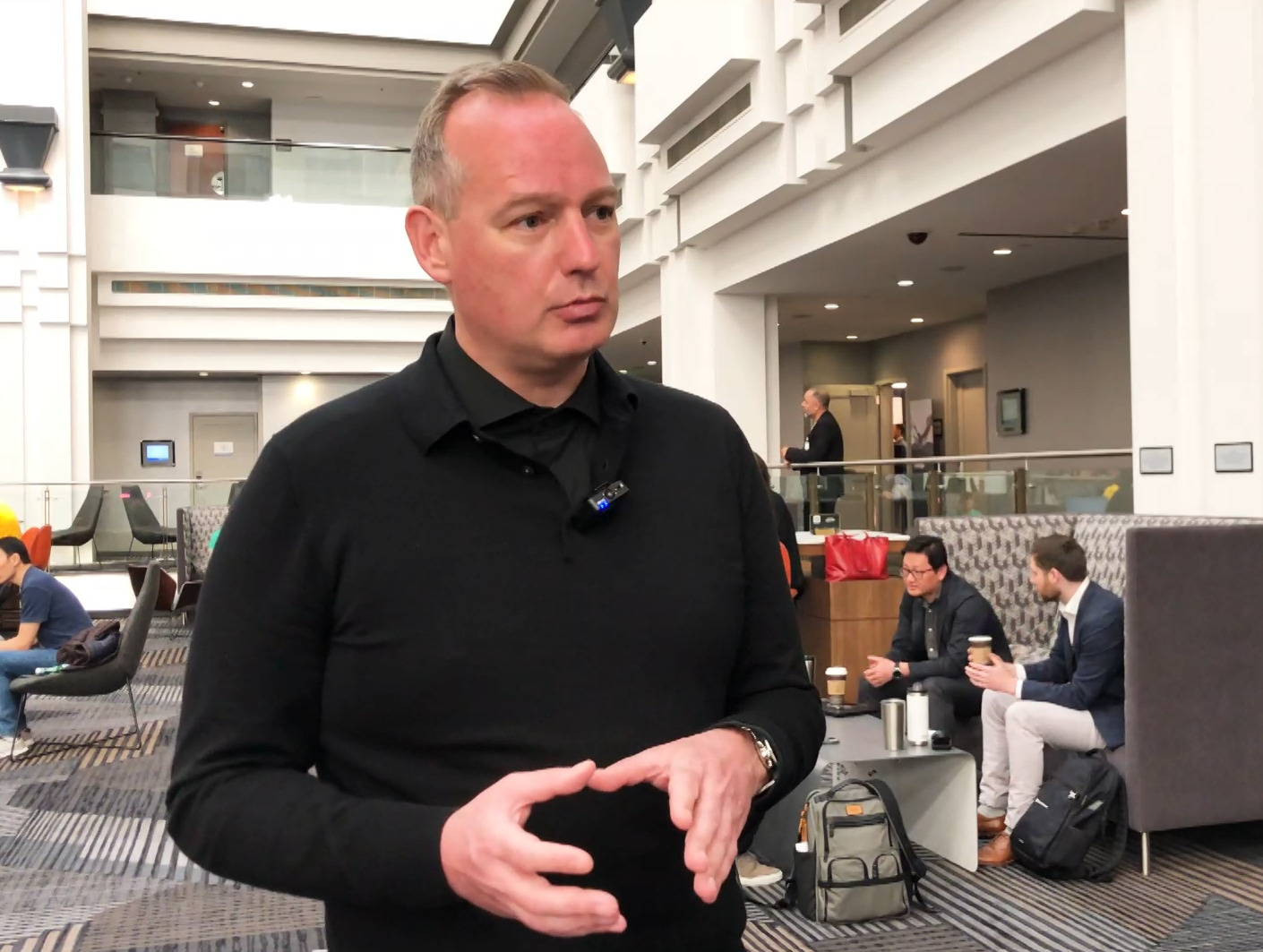Multiple startups are now making dairy proteins with microbes in fermentation tanks instead of cows. But if the marketing and positioning of these ingredients is too narrowly focused on the ‘animal-free’ aspect, says Netherlands-based startup Vivici, it could limit their market potential.
“What we see is that customers are looking for better nutrition, better functionality, as well as a greater sustainability footprint,” Stephan van Sint Fiet told AgFunderNews at the Future Food-Tech conference in San Francisco last week. “If we assume that the number one reason to buy these products is to avoid animals, we’re missing out on some of the main drivers.
“For example, we make pure beta-lactoglobulin [via precision fermentation using a genetically engineered yeast strain] and with that pure protein we get functionality that we don’t get with the full whey complex [which contains multiple proteins including alpha-lactalbumin and lactoferrin].”
Take clear protein beverages, he said. “The industry has been trying for a long time to put high protein, clear protein waters on the market. But with whey protein isolate, it’s not possible. It’s turbid, it doesn’t become clear. With pure beta-lactoglobulin you get this beautiful clear beverage, and so now suddenly, all of those brands have an ingredient at their disposal that allows them to get to the product appearance that they want, while also having a high protein concentration.
“So that’s just one example of how these ingredients [from precision fermentation] don’t just need to compete on cost; they can compete on functionality and enabling new product launches as well.”
Beta-lactoglobulin is also “known for its rapid absorption, which is optimal for fitness enthusiasts focused on muscle growth and recovery,” he said, noting that Nestlé recently unveiled a limited edition of Orgain protein powder (‘Better Whey’) featuring beta-lactoglobulin from fermentation, which it positioned as ‘easier to digest’ than regular whey.
Marketing whey from fermentation
If the marketing and positioning of dairy proteins made via fermentation is too narrowly focused on the ‘animal-free dairy’ aspect, meanwhile, not only can it be confusing for consumers (who may struggle to understand how you can have dairy without cows), but it potentially limits the market, he argued.
“If we narrow it down to only ‘animal-free,’ we’re really pigeonholing ourselves by saying this is all about getting rid of the animal, as opposed to nutrition, functionality, sustainability… so I think ‘animal-free’ is perhaps a less ideal descriptor [than, say, ‘whey protein from fermentation’] going forward.”
Pricing: ‘I don’t even know if it is desirable that we all chase price parity’
As for pricing, hitting key metrics on productivity, titer and yield are critical to achieving solid unit economics in any precision fermentation operation, said van Sint Fiet. But identifying the key value proposition of ingredients produced in this way is equally important.
“In this industry, we ought to be looking for value. I don’t even know if it is desirable that we all chase price parity; shouldn’t we be looking for where’s the value, where’s the premium value proposition that we can enable with these ingredients, and look for value rather than lower cost?”
‘Moving faster than most of our peers’
Vivici—formed by Fonterra and DSM-Firmenich in December 2022—is already in a position to supply commercial quantities of whey protein from fermentation to the US market, said van Sint Fiet.
The startup has been able to move unusually rapidly by leveraging its founders’ expertise in dairy proteins and industrial-scale biomanufacturing, he explained.
“So in the early days of the journey, we of course leveraged DSM’s biotech capabilities and Fonterra’s understanding of the application of dairy proteins, and we’ve taken that forward since with the team and really accelerated, which has allowed us to move faster than most of our peers.”
Target markets
At Vivici, he said, “We’re focused on the active nutrition part of the health and wellness market, where people are looking for high quality protein and building a premium value proposition around it.
“We will focus on being a b2b ingredient company, and this year, our focus will be on the United States. We have self-affirmed GRAS (Generally Recognized as Safe) status in the USA, as of about a month ago, and we will of course, pursue other markets like Europe, like Singapore. But this year our focus is on the US and working with food and beverage companies that are looking to bring premium brands to the market.”
Further reading:





